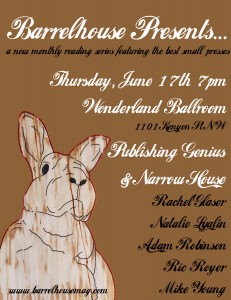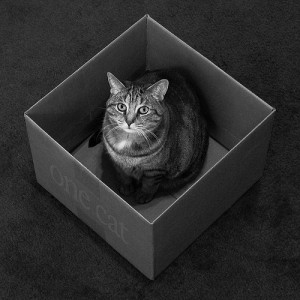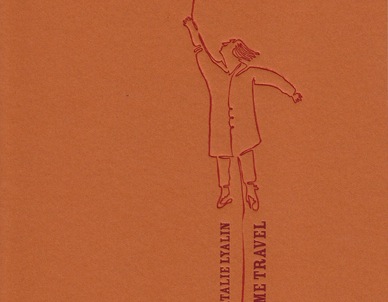 The title poem in Natalie Lyalin’s UDP chapbook, Try a Little Time Travel, is funny. It begins:
The title poem in Natalie Lyalin’s UDP chapbook, Try a Little Time Travel, is funny. It begins:
Try it a bit, instead of sexing
One night. Close your eyes,And think, Grandmother,
I’m coming to you, live!… (link to purchase)
I like capitalizing the first word in every line in poetry. Some people think it’s old fashioned. It doesn’t mean anything really, I just like it.
All the poems are good. Here’s a bit from another one, where the title is the same as the first line of the poem (a convention I also like, though not as much):
Jesus shows inside his flesh.
He is airy marbles and we are
All looking at his un-pain
Best food writing award goes to Zach Golden and Russ Phillips for their website, What the Fuck Should I Make for Dinner. Seems to be new every time it is refreshed. Via Natalie Lyalin.
NLW (6): Dimension x7y Giga Heart Maggot
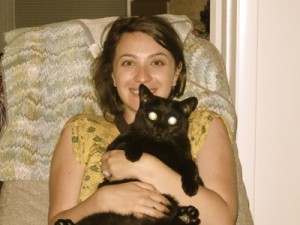 Today’s Natalie Lyalin Week bon bon is a guest post from Erin McNellis, who wrote this terrific review of Natalie Lyalin’s Pink and Hot Pink Habitat for NOÖ Journal [11]. Animals abound!
Today’s Natalie Lyalin Week bon bon is a guest post from Erin McNellis, who wrote this terrific review of Natalie Lyalin’s Pink and Hot Pink Habitat for NOÖ Journal [11]. Animals abound!
You studied ecology in seventh grade, memorizing the biomes for your science test: the chaparral, the rainforest, the tundra. You learned about the delicate balance of life, you imagined yourself into each exotic environment from your cold, smooth desk under the fluorescent lights—but you never imagined any place quite like Natalie Lyalin’s Pink and Hot Pink Habitat.
Natalie Lyalin Week (4): Guest Post by Seth Landman
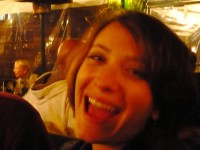 Today’s lovely Lyalin post is by the talented and dedicated Seth Landman, poet, editor of Invisible Ear, and basketball enthusiast.
Today’s lovely Lyalin post is by the talented and dedicated Seth Landman, poet, editor of Invisible Ear, and basketball enthusiast.
Before Landman takes it away, remember that you can buy Natalie’s book, Pink & Hot Pink Habitat, here. Giveaway possibilities are described here.
So, here Seth excerpts a poem and comments on it.
The world was not yet discovered.
It traveled in a galaxy of dinosaur bones and other fossils.
Embedded and waiting. Waiting for decades
when the skirts were different.
When Mr. O watered his plants in a light blue shirt with a breast pocket,
His hair slicked back, he boarded a plane to Africa, where the lion still
walked in bursts of grass.
In his light blue rental car, Mr. O took photos, very close photos, of lions resting.
There was nothing to report back.
The world lay silent. The giant squid was silent.
The continents were silent. It was quiet as he boarded the plane for home.
It was quiet in the diamond mines, it was quiet in the coal mines,
And the Loch Ness monster sighed and waited for sonar.
Thought Experiments
If you had to go to a party dressed as the last animal you killed, what would you go as? I’d probably go as a newt, or if that newt didn’t die, then I’d be a fruit fly. Schrödinger either would or wouldn’t be a cat, depending on something random.
At least one person has said that much of modern physics is built on thought experiments. Einstein’s thought experiment about chasing a light beam got him to his theory of relativity.
Do you use thought experiments, or something like them, in your writing? Or, another way: how do you make environments using language?
P.S. It isn’t new, but check out “Keats in Space” by Molly Young for a discussion of the fusion of poetry and science. Also, Natalie’s poem “Water Experiment” and the discussion that follows gives you some poetry and science.
Natalie Lyalin Week: CONTESTS!
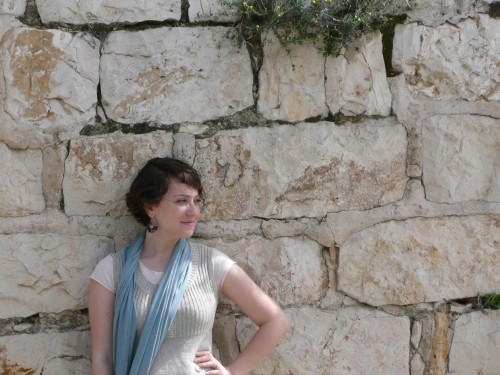
This week, there are all these ways you can win a copy of Pink & Hot Pink Habitat by Natalie Lyalin and more things along with it.
In two ways you might win the whole Coconut books catalog:
1. By commenting at fellow Coconut poet Gina Meyer’s blog.
2. By commenting at fellow Coconut poet Reb Livingston’s blog.
And in one way you can win a copy of P&HPH plus a badass t-shirt.
1. By commenting at A Mystery in Common
Natalie Lyalin Week (2): Water Experiment in Two Parts
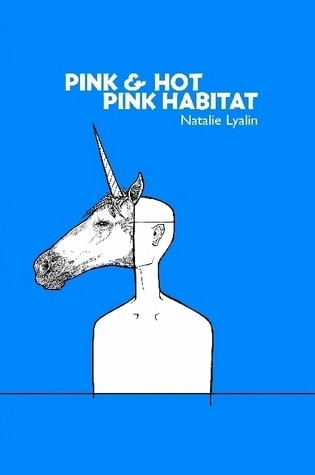
Below is perhaps my favorite poem, though there are likely many favorites, in Natalie Lyalin’s Pink & Hot Pink Habitat. It speaks for itself. After it though, following the break, I’ll say a little more about what it does on me, as a human.
I.
A scientific study reveals: water is alive.
Equal amounts of water is poured into three identical containers.
Zelig Berken died fighting in world war II.
Equal amounts of rice is poured into each container.
Zelig Berken was twenty years old.
The first container is told “I hate you.” The second container
is told “I don’t care about you.” and the third container is told
“I love you very much.”
While Zelig Berken was away at war his entire town was evacuated.
The rice in the first container turned black. The rice in the second container
bloomed. And the rice in the third container rotted.
II.
Water is poured into two identical containers.
The first container goes home with Scientist A.
The second goes to church with Scientist B.
The next day, a droplet is extracted from each container.
The droplet from the first container shows nothing of significance.
The droplet from the second container shows formations of stars
and giant flowers.
Natalie Lyalin Week (1): A Poem, An Interview
This week, I along with other contributors will throw down with Natalie Lyalin, editor of GlitterPony and author of the next book of poems that you should buy: Pink & Hot Pink Habitat (Coconut Books). Buy it here. There will be opportunities to WIN Natalie’s book along with other books from the tremendous Coconut catalog, so stayed tuned for that. This will be like a party on the internet. A party that starts with a poem and follows that with an interview to which the poem is relevant. So, to begin.
GREAT SOPHIAS
There were two great Sophias
and a few good Dorothys. We enacted
inside the outside world of the mausoleum.
The mausoleum is by my house,
and I thought it was ordinary. I thought
it was all ordinary. I was Sophia,
but not so good at it. I loved Dorothy.
On the lake, the small swans stood on water.
I stood under a tree. Someone occupied the
peace pagoda. It is not always certain,
a safe exit from the forest.
I believe their show was the first
to address homosexuality. Dorothy
loved the way she dressed.
They were dressed impeccably.
Because Natalie’s book gave me lots to think about concerning gender and place, these were the starting points of the interview, after the jump. READ MORE >
The Next Step and The Whole Point
When reading the work of prodigiously–okay wildly–talented contemporaries–people like Natalie Lyalin, Heather Christle, Sabrina Orah Mark, Chelsey Minnis, Claire Becker–I tend to think first:
I love this. This is essential and beautiful.
And then at some point, my thoughts turn to my own work, and a voice says,
I can’t do anything like this.
It is all too easy to stop at that point, and stew, and–to drown out the voice–spend the next part of the day doing something that isn’t writing.
But the voice isn’t done talking.
That is going to have to be okay. There are other things I can do.
Listen to that, and return to your writing. This is the next step.
It’s not as if Chelsey Minnis can do what Sabrina Orah Mark does. It’s not as if Sabrina Orah Mark can do what Chelsey Minnis does. This is the whole point.

